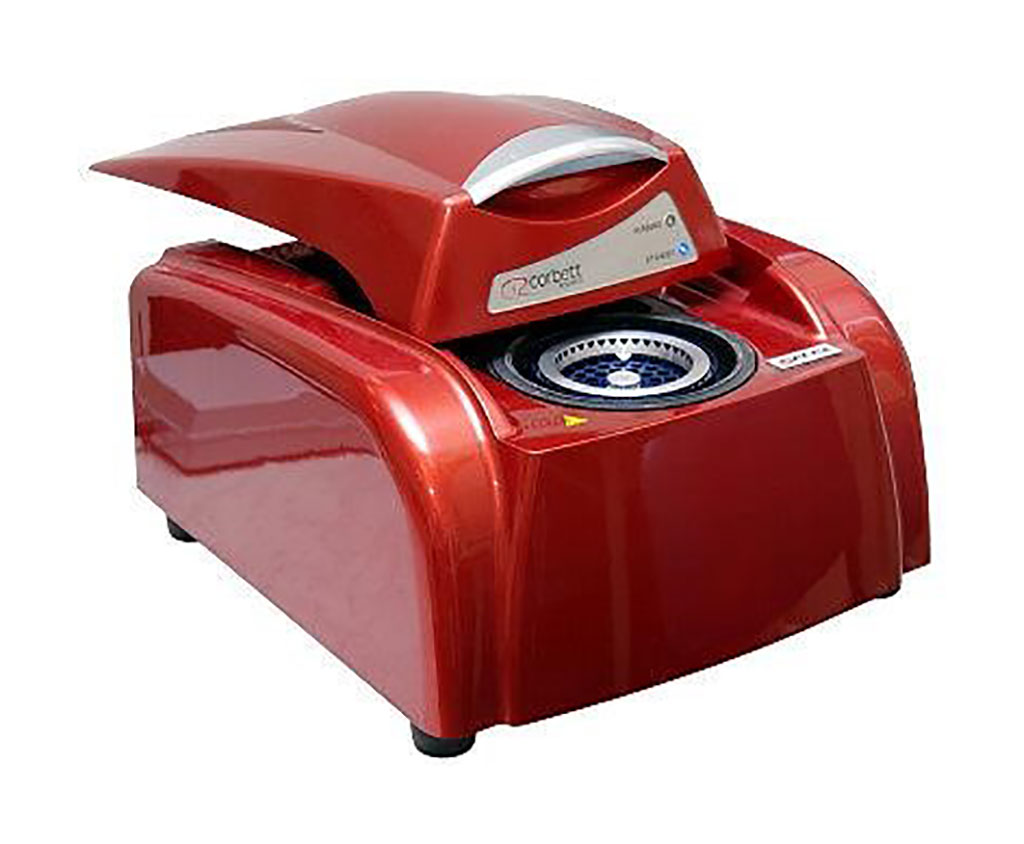Isothermal Amplification Method Used to Detect Salmonella Subtypes
By LabMedica International staff writers
Posted on 25 Jun 2020
Salmonella is a common cause of foodborne disease worldwide, including Australia. More than 85% of outbreaks of human salmonellosis in Australia were caused by five Salmonella serovars. Rapid, accurate, and sensitive identification of Salmonella serovars is vital for diagnosis and public health surveillance.Posted on 25 Jun 2020
Traditional culture-based methods for detection of Salmonella pathogens are time-consuming, laborious, and expensive. PCR-based techniques (PCR and real-time PCR) and isothermal amplification techniques, such as loop-mediated isothermal amplification (LAMP), have been suggested as alternatives. Multiple cross-displacement amplification (MCDA), employs 10 primers, instead of six in LAMP or two in PCR, to recognize 10 distinct regions, which enhance its specificity and sensitivity.

Image: Corbett Rotor-Gene 6000 Real Time PCR Machine (Photo courtesy of Corbett Life Science).
Biotechnologists from the University of New South Wales (Sydney, Australia) developed and evaluated seven MCDA assays for rapid detection and differentiation of the five most common Salmonella serovars in Australia: Typhimurium, Enteritidis, Virchow, Saintpaul, and Infantis. MCDA primer sets were designed by targeting seven serovar/lineage-specific gene markers identified through genomic comparisons. The team used a total of 111 strains.
To evaluate the seven MCDA primer sets, Salmonella species–specific gene invA MCDA assay was used as positive control. The MCDA reactions were performed on a Corbett Rotor-Gene 6000 Real Time PCR Machine (Corbett Life Science, Sydney Australia) with the WarmStart LAMP DNA Amplification Kit (New England BioLabs, Melbourne, Australia) in a total volume of 10 μL reaction mixture incubated at 63 °C for 60 minutes and then heated at 95 °C for five minutes to stop the amplification. Real-time LAMP fluorescent dye measurement was used to monitor the MCDA amplification every minute.
The investigators reported that the sensitivity and specificity of the seven MCDA assays were evaluated using 79 target strains and 32 non-target strains. The assays were all highly sensitive and specific to target serovars, with the sensitivity ranging from 92.9% to 100% and the specificity from 93.3% to 100%. The limit of detection of the seven MCDA assays was 50 fg per reaction (10 copies) from pure DNA, and positive results were detected in as little as eight minutes. These seven MCDA assays offer a rapid, accurate, and sensitive serotyping method. With further validation in clinically relevant conditions, these assays could be used for culture-independent serotyping of common Salmonella serovars directly from clinical samples.
Ruiting Lan, PhD, a professor and the lead author of the study, said, “If we can really reduce the infections from the top phenotypes causing the majority of outbreaks, it will help all the way from the farm level to the clinical level to reduce Salmonella infections.” The study was published in the May, 2020 issue of The Journal of Molecular Diagnostics.
Related Links:
University of New South Wales
Corbett Life Science
New England BioLabs














